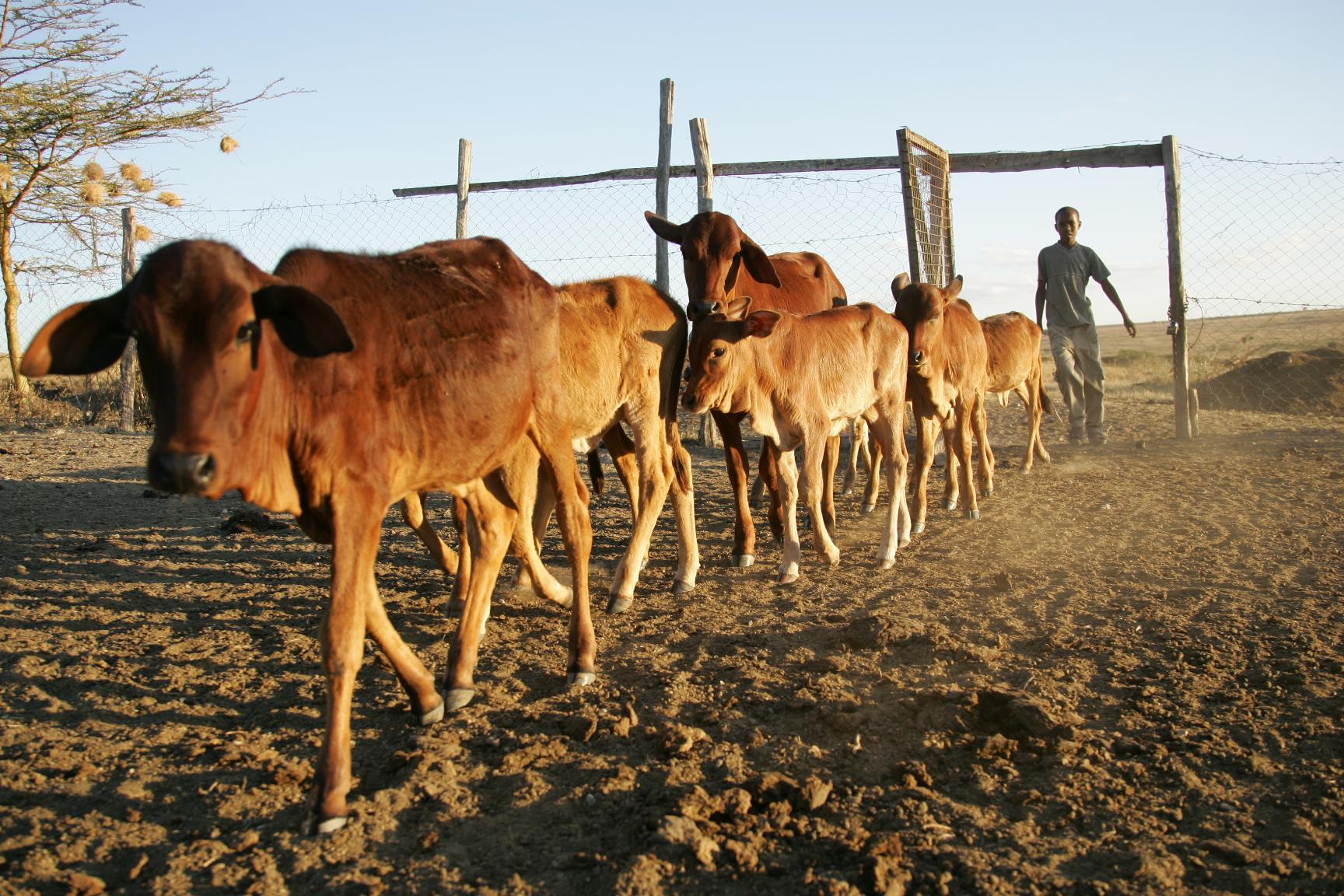New Solutions Group Aims to Unlock Investment in Digital Services for Livestock Methane Management

S. Mann (ILRI)
A new collaboration between global experts is paving the way for climate action in livestock systems
What does it take to unlock investment in digital solutions that can reduce livestock methane emissions while boosting farmer productivity in low and middle-income countries (LMICs)? This critical question brought together our newly formed LD4D Digital Services for Methane Management Solutions Group in Bonn, Germany for an intensive workshop focused on developing a comprehensive Investment Roadmap. This initiative is a strategic partnership between the Livestock Data for Decisions (LD4D) Network and the Climate and Clean Air Coalition (CCAC), with the Bonn workshop expertly hosted by GIZ, the German Development Agency.
A Collaborative Approach to Climate Solutions
The workshop represented a unique convergence of expertise, bringing together policy makers, researchers, technology innovators, and climate finance experts—all united by a shared commitment to creating measurable impact in the livestock sector. This diversity of perspectives proved essential as participants worked to create actionable guidance for governments and international financial institutions on scaling digital innovations.
“The end goal is to connect digital solutions for livestock to productivity improvements to reduce methane emissions intensity from livestock," explained co-organiser Greg Kohler, who works as an Agriculture Expert at the Climate & Clean Air Coalition.
The energy and collaboration throughout the workshop were remarkable, with participants diving deep into the complex challenges facing digital services in the methane management space. The focus remained consistently practical: how can we overcome existing barriers and create pathways for meaningful investment in technologies that deliver both methane reduction and productivity benefits for livestock producers?
"We are very excited about our Solutions Group model and its potential to mobilise expertise across the LD4D network to generate concrete outputs that help to address key challenges in the livestock sector," said Ana Miranda, LD4D Development Manager based at the SEBI-Livestock Programme, University of Edinburgh.
Building an Investment Roadmap
The Investment Roadmap being developed through this initiative aims to provide practical, evidence-based strategies that address real-world barriers to scaling digital tools for methane reduction. Tailored for public sector institutions and international financial institutions, the roadmap will focus on actionable steps that can guide decision-makers in unlocking the potential of digital agriculture solutions.
During the workshop sessions, Solutions Group members collaborated to draft four comprehensive pathways that form the backbone of the Investment Roadmap. Each pathway addresses a critical dimension of methane-smart digital services for the livestock sector:
- Scaling Methane-Smart Digital Services: Identifying investment strategies and mechanisms to expand successful digital solutions across different regions and farming contexts, ensuring technologies can reach scale while maintaining effectiveness.
- Policy Integration: Developing frameworks for incorporating methane-smart digital services into national policies to improve Greenhouse Gas (GHG) reporting systems, creating supportive regulatory environments that can help investors identify opportunities for methane mitigation.
- Digital Public Infrastructure Development: Building the foundational digital infrastructure necessary to support widespread deployment of digital solutions including methane management technologies, as well as connectivity, data systems, and technical capacity.
- Data Ecosystem Mobilisation: Establishing robust livestock data ecosystems that enhance monitoring, reporting, and verification (MRV) capabilities, ensuring accurate measurement and accountability for methane reduction efforts. This can unlock access to climate finance, carbon markets, and results-based financing mechanisms.
The final roadmap is designed to directly inform how governments and international financial institutions approach investment decisions in this critical area, ensuring that funding flows toward solutions that can deliver genuine impact for both climate goals and farmer livelihoods.
Meet the Solutions Group
The Power of Cross-Sector Partnership
This initiative exemplifies what effective collaboration looks like when addressing complex climate challenges.
“It’s really exciting to partner with LD4D specifically because they have a wonderful network of data practitioners and solutions developers,” said Greg Kohler of CCAC. “
By bringing together expertise from across sectors and geographies, the Solutions Group can tackle the multifaceted nature of methane management in livestock systems,” he said.
The Solutions Group includes dedicated experts from across the globe, representing diverse institutions and perspectives:
- Research Institutions: International Livestock Research Institute (ILRI), University of Edinburgh (SEBI-Livestock), University of California, Davis
- Government Representatives: Kenya Ministry of Agriculture and Livestock Development, Brazil Ministry of Agriculture, GIZ
- Global Partnerships: Climate and Clean Air Coalition (CCAC), Environmental Defense Fund
- Technology Innovators and Accelerators: Stellapps Technologies, Global Farm Animals Ration Programs (Global FARP), AIM for Scale
- Investors: International Fund for Agricultural Development (IFAD) and the World Bank
This geographic and institutional diversity ensures that the Investment Roadmap will respond to specific decision-making needs, while leveraging cutting-edge research and technological innovation.
Looking Ahead
The workshop in Bonn represents an important milestone in this collaborative effort. As the Investment Roadmap moves toward finalization, it promises to become a critical resource for unlocking the potential of digital services in livestock methane management.
The initiative reflects a growing recognition that addressing climate change in the livestock sector requires more than technological innovation — it demands coordinated and evidence-based investments, supportive policy frameworks, and collaborative approaches.
By focusing on practical, evidence-based strategies, the Digital Services for Methane Management Solutions Group is working to ensure that digital agriculture technologies can deliver on their promise of reducing emissions intensity while supporting farmer productivity and food security in LMICs.
The results of this work will provide invaluable guidance for stakeholders across the livestock value chain, from farmers and technology developers to policy makers and investors, all working toward a more sustainable and productive future for livestock systems worldwide.
Stay tuned for updates as this critical Investment Roadmap nears completion and begins to guide real-world investment decisions in digital livestock solutions.



